
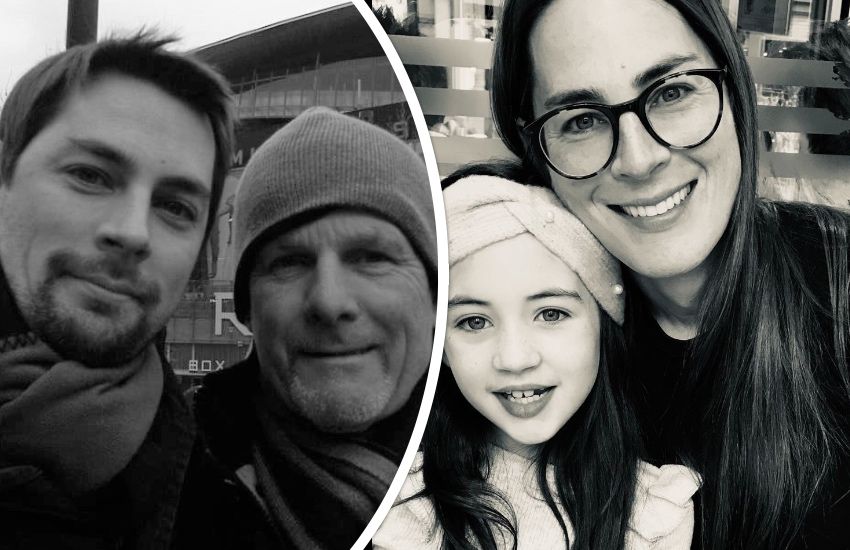

I met Blake in 2020 when I was trying volleyball for the first time and she was returning to the sport after a hiatus. She gave me some guidance, was good humoured and effortlessly easy to get along with. Had she not volunteered the information that she was a trans woman, it is not something that I would have known.
While Blake’s gender identity did not alter my view of her, interviewing her for this piece did. Her transparency about a life of unimaginable internal conflict and the trauma of the implications of her decision to transition left me humbled, inspired and grateful for a deeper understanding of a harsh reality.
With a strong Canadian accent, Blake surprised me from the outset of the interview in how much of her life has been spent on-island.
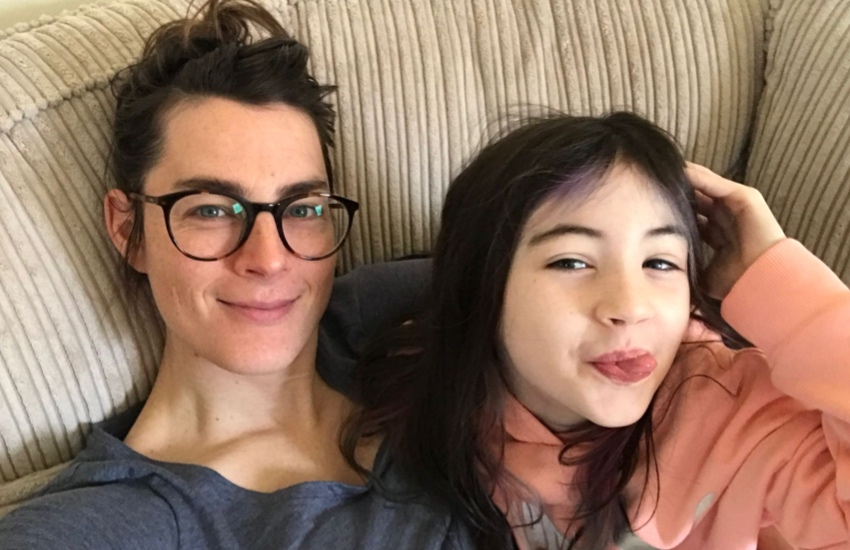
Pictured: Blake with her daughter, Elsa.
“I was born in Vancouver but my dad was a Guernseyman so we went back and forth between Canada and the island a lot. We moved back to Guernsey when I was about five until 11, so all of my primary schooling was in Guernsey,” said Blake.
“We moved back to Canada for my teenage years, then I have been back in Guernsey since I was 18. The formative years for developing any accent are between 10 and 20, so the Canadian accent has stuck.”
Of her 25 adult years in Guernsey, two-thirds were spent living as a man. Blake was engaged to her then-partner of 12 years, had a daughter, worked in a male-dominated industry and was an island player on the men’s volleyball team.
Despite an outwardly stereotypical male identity, Blake explained that the reality was far from how it looked.
“I first started to have a lot of confusion about where I fit in around the age of 11 or 12. I just knew that my body felt wrong,” she said.
“I like stereotypical ‘boy’ things like playing sports and going camping. I had both boy and girl friends and I realised that I was beginning to grow jealous of the girls around me. I didn’t like that I was forced to be wearing boy clothes.”
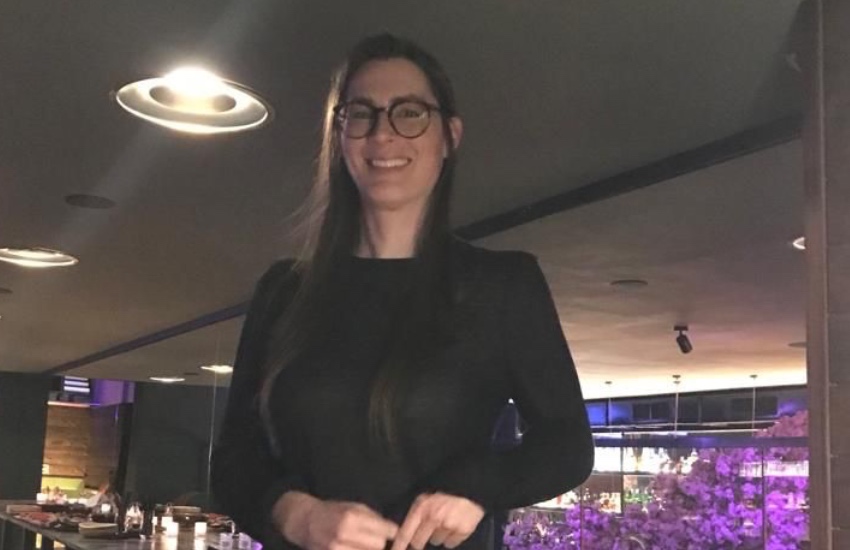
Pictured: Blake said she considers her transgender identity to be "an elephant in the room" so speaks openly about her transition.
Blake continued: “I remember watching the movie “Switch”, a film where a sexist womaniser ends up killed by one of his girlfriends and is reincarnated as a woman to learn the error of his ways.
“I watched that film and desperately wished that there was a magic switch that could make me a woman.”
Blake explained that she kept thoughts of her gender identity confusion to herself.
“This was the 90s, when the only representation of transgender people were as prostitutes and drug addicts on the very fringe of society,” she said.
“It was at a time where even being gay was portrayed as being completely wrong, so to be transgender wasn’t even a possibility in my mind. I didn’t want to express my thoughts and end up losing my family and friends and becoming a potential victim of society.
“I repressed those feelings most of the time, but they were always somewhere in the back of my mind and would come up periodically. I told myself that it was just something I would need to accept and hoped that, maybe if there was a heaven, that one day I might become a woman there.”
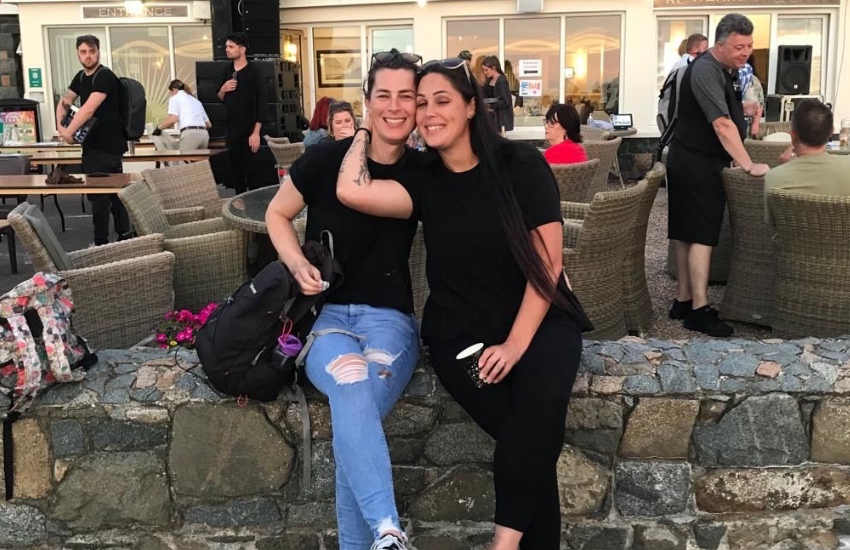
Pictured: Blake with her fiancee, Rachel. Blake said she is "still reeling" from finding someone who loves her for who she is.
Blake struggled with depression and anxiety. “I eventually made the difficult decision to reach out for help to find a way to cope,” she said.
“At 18, I went to see my GP and said that I wasn’t happy being a man. I was referred for a mental health assessment at, what was then, Castel Hospital.
“I had seven or eight sessions of talking therapy about what I wanted and where those feelings were stemming from.
“The psychiatrist was a nice guy, but he was focused on trying to work out where men fit in my life. Despite my assurance that I was attracted to women, he believed that I was a repressed gay man and suggested that I dated men.”
Blake felt that the talking therapy at the time was not the support she needed and decided to “handle things as best [she] could”.
“I decided that I would firmly close the door on any thoughts of being unhappy being a man and that I would just move on. I knew that I would slip into struggling with it and being depressed every couple of years, but I was willing to deal with that,” she said.
“I did mention it to an ex but explained it by saying I had gender issues when I was growing up but that it was no longer an issue. I honestly believed that to be true.”
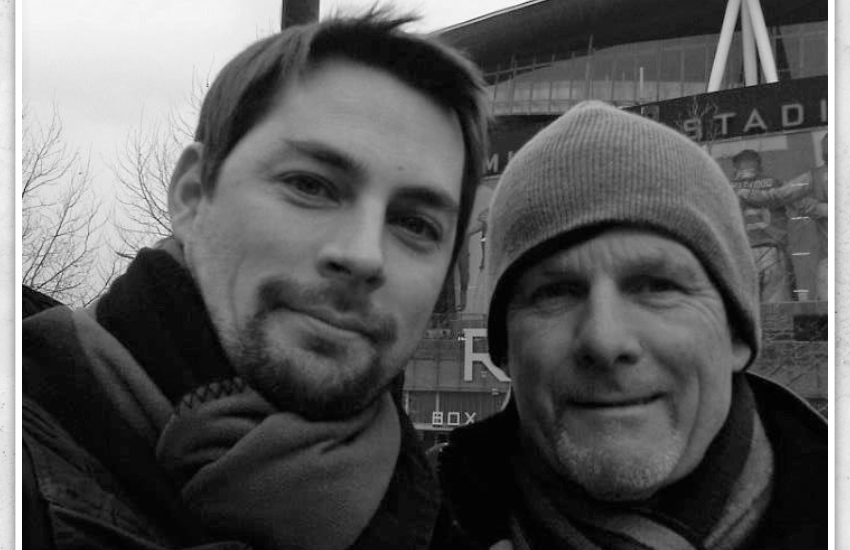
Pictured: Blake with her father, who she said "never wavered" from loving and accepting her.
While trying to move forward with her life, Blake’s mother was diagnosed with Lewy body dementia.
“Even now, it is difficult to put into words the impact losing my mother had on me. She disappeared before our eyes. I initially helped to care for her but there was an evening one February where she was found wondering the streets in her pyjamas and it was apparent that, sadly, she needed to be in a care home,” she said.
“I never got the chance to come out to my mum and it is one of my big regrets, although I have zero doubt that she would have fully accepted me.”
Around a year after the death of her mum, Blake and her then-fiancée, welcomed their daughter, Elsa.
“We went from losing someone so important and dealing with the impact of that, to having this incredible little baby enter our lives,” she said.
“I love my daughter more than I can put into words, but fatherhood triggered my gender dysphoria. It wasn’t about parenthood, but specifically about what fatherhood represented and how I was expected to present.
“I was often in tears. I had repressed everything for so many years that it was all too much, and I seriously considered taking my own life. I couldn’t stand what I saw in the mirror, but at the same time I didn’t want to lose my family."
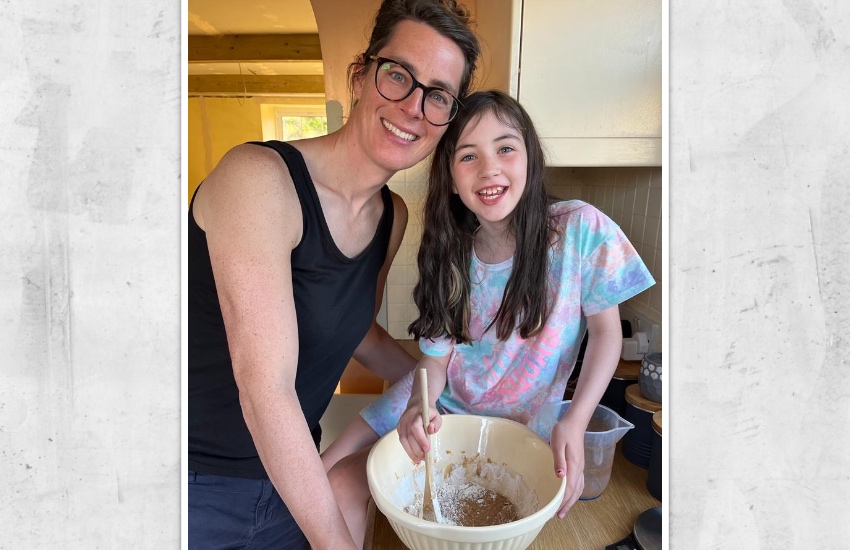
Pictured: Blake said that the pain of losing custody of her daughter gave her perspective and strength.
Blake continued: “Gender dysphoria is not something that all trans people will experience, but mine became unmanageable. I raised it with my now-ex and said that it was too much for me to handle and that I needed help.
“Initially she was fully supportive of me getting any support I needed and said she would be there for me no matter what. After a few weeks, that changed as the reality dawned on her.”
Blake said that she didn’t blame her ex-partner for eventually deciding to end their relationship.
“My transition was not something that she had signed up for. She had signed up for a life with a boyfriend, eventual husband, a father to her child. She didn’t sign up to be in a relationship with a trans woman,” she said.
“When she ended our relationship, I was heartbroken, but I would never have expected her to change for me. Initially she said that we could co-parent and continue to be best friends, but ultimately decided that she wanted to move back to Scotland with our daughter.”
Blake said losing custody of her daughter was one of the most difficult things she has had to deal with.
“The trauma of my daughter being taken away far outweighed the trauma of being trans. The struggle of losing custody gave me perspective and strength in respect of my transition,” she said.
“Thankfully, I was having therapy through the entirety of dealing with the fall out of losing my daughter, which helped me navigate things. Lots of tans people don’t need therapy, but I did. It’s very individual.”
Although a GP referred to a gender identity clinic, but Blake opted for a private healthcare route.
“The waiting time for an appointment with the gender identity clinic was four or five years and I was fortunate that I was able to go down the private route,” she said.
“I started hormone replacement therapy and had regular psychotherapy on-island, which helped me to figure things out. I felt relief from the moment I started the hormone replacement therapy. I felt so much better; it was as if all the continual noise and confusion calmed down and everything came into focus.
“The best way I can describe it is the feeling that my body was like a car running on the wrong fuel until I started the hormones.”
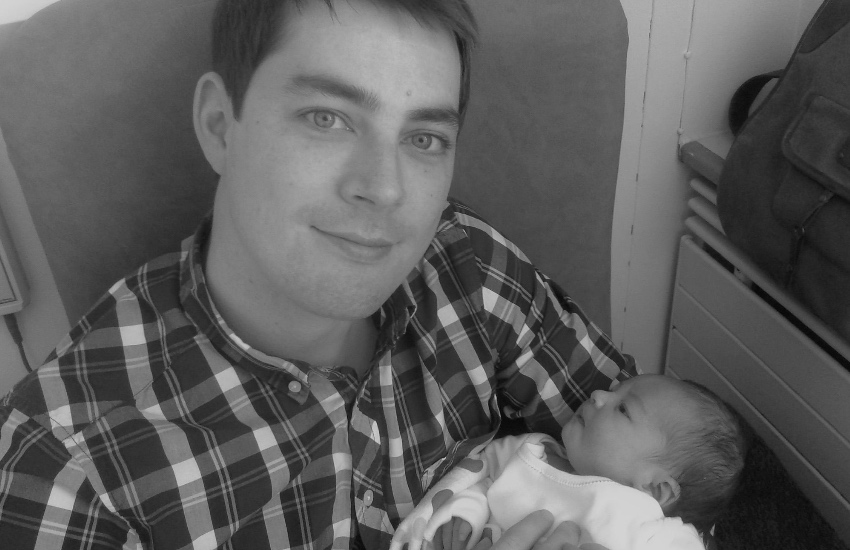
Pictured: Blake said that fatherhood triggered her suppressed gender dysphoria.
Blake explained the complexities of dealing with a custody battle while transitioning.
“The pain of having my daughter taken away from me overshadowed some of the joy and happiness of my transition,” she said.
“In one respect I was finally finding acceptance and feeling happier with myself and my body, but I was also dealing with the deep pain of losing my family. People would say that I must be so happy finally transitioning, but my answer was always ‘I am, but I’m not’.”
Blake had mixed reactions from her own family regarding her identity as a transgender woman.
“My dad never wavered from loving me, no matter what. My step-mother also accepted me completely. When I came out, he thought that I was going to tell him that I was gay, so he really didn’t see it coming when I said that I was transgender,” she said.
“I feel that I let him down by not telling him sooner because he had a hard time wondering why I didn’t feel able to tell him and my mum earlier.
“I tried my best to explain that it wasn’t anything to do with my parents, but the world I was growing up in. When I was growing up, trans people were mocked and ridiculed and that wasn’t the life I wanted.
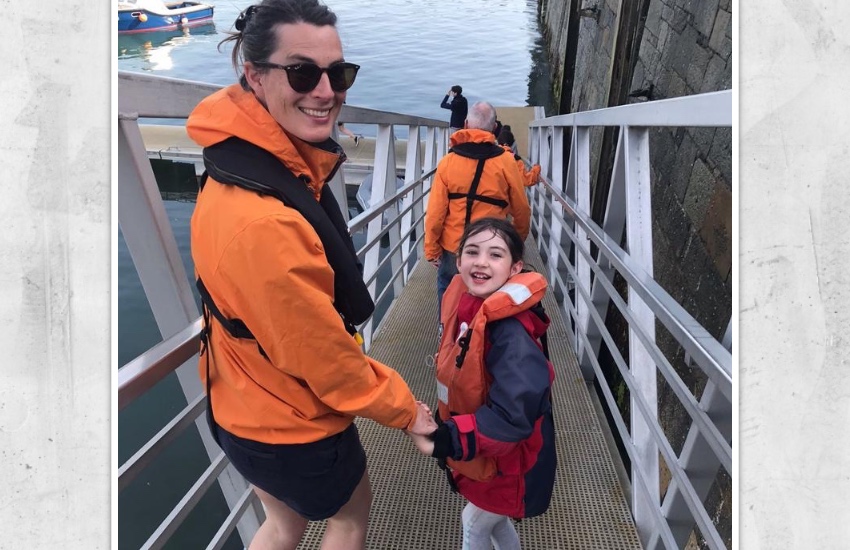
Pictured: Blake spends as much time with her daughter as she is able to.
“I have two views. My subjective view is that I feel a lot of guilt for not telling my parents sooner and I feel that I let them down by not telling them. Objectively, the world I was growing up in made it almost impossible for me to feel comfortable coming out," said Blake.
While Blake’s father accepted the news, her relationship with her older brother became strained.
“My brother had returned to Canada several years prior to my transition. He had experienced some difficulties in his life and eventually found solace in Christianity,” she said.
“He had a hard time trying to reconcile his faith with who I am. Over the years, he has started to find a balance.”
Blake said she was “fortunate” to have had a “positive work environment”.
“I work in the support office at Specsavers and was the first employee there to actively transition. They have been amazing throughout my transition,” she said.
As Blake adapted to life as a transgender woman, she also had to accept her sexuality.
“Part of me had hoped that, once I started transitioning, I would find men attractive. In my mind, that would make things easier. It would be easier to be a straight trans woman than a lesbian trans woman,” she said.
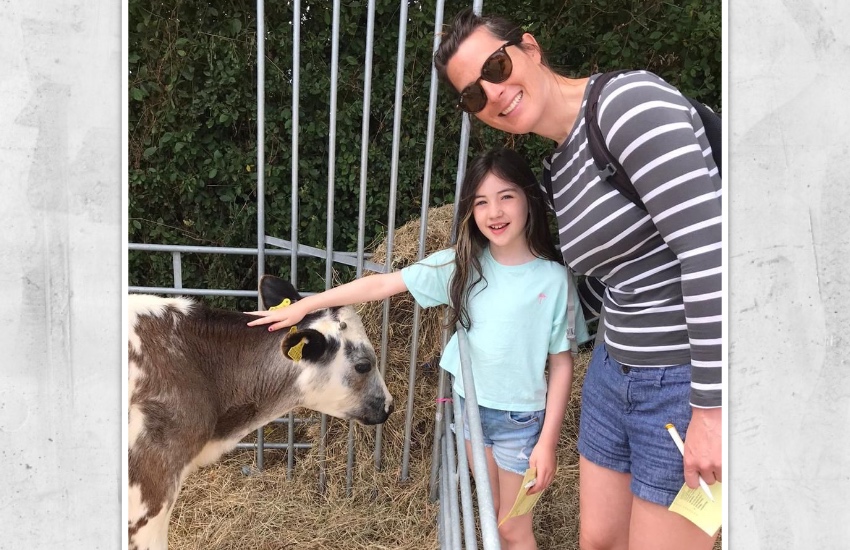
Pictured: It was clear in talking with Blake that her daughter means everything to her.
Blake continued: “There are so many stereotypes and myths about dating as a trans woman. I was single for six years and I didn’t think that I would ever find anyone.
“I then met my fiancée, Rachel, at work. She is incredible. She listens so well, she’s amazing with Elsa and she sees me for the person I am. She loves me for the real me and I am still reeling from that, in the best possible way.”
Blake also found her place returning to sports.
“I have always loved playing volleyball and I used to be on the men’s island team. I had to stop after a persistent knee injury, which led me to write sports off completely,” she said.
“Four or five years into my transition, I went back to physiotherapy because my knee injury was at the stage where I couldn’t walk without pain, let alone run. I followed a physiotherapy regime and eventually felt able to pick up sport again."
Blake initially tried sitting volleyball on the recommendation of a colleague and friend, but said that it was “fun, but not for me”.
“In 2020 I went to an open volleyball session at Beau Sejour. Men were playing on one court and women on the other. It was surreal for me to be back in that environment after so many years out of the sport anyway, regardless of thinking about the gender issue,” she said.
“I found an empty court and just start practicing when someone asked if I wanted to rally with them. They then said that they had a spot open on their ladies’ team and did I want to join.
“I didn’t want any spotlight on me because there was also a lot about trans women playing sport in the media. I explained that I didn’t want to compete, but that I would like to come along to training sessions and ended up playing for about 18 months. I also played softball.”
Although apprehensive about “standing out” when it came to sports, Blake said she is actively open about being transgender.
“I will always bring it up. After a lifetime in the closest with so much shame, I am finally proud of who I am,” she said.
“It is completely subjective, some people are happier not mentioning that they are trans. Personally, I am happier being open and having those conversations, because each time I talk about it, it means that the other person has met one more trans person.
“I also assume that everyone I interact with sees a man dressed in women’s clothes. I went through an awkward phase of being ‘visibly trans’ during the transition and, in my mind, that is what I think people still see. To me, it’s the elephant in the room and I would rather address it directly.”
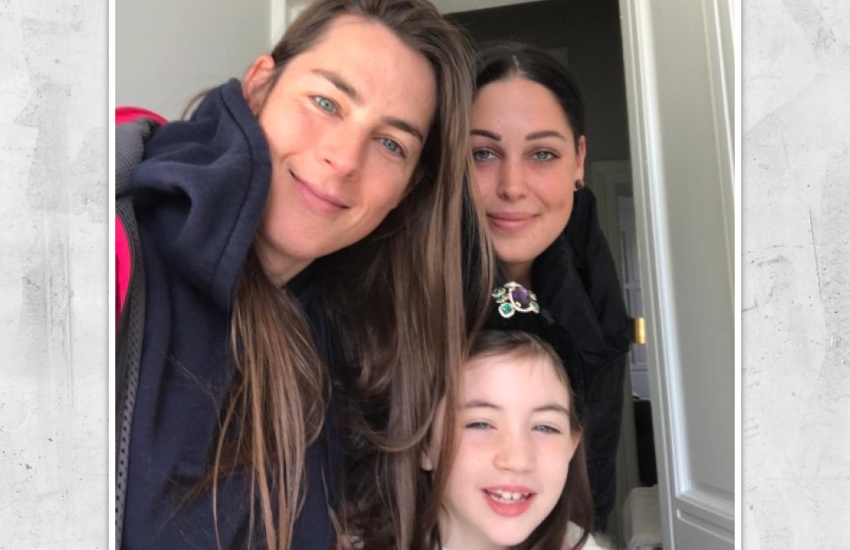
Pictured: Blake said her wish for the future is to spend as much time with her daughter and bride-to-be as possible.
After finding a local support group while transitioning, Blake then spent several years facilitating it. She also played an active role in the local LGBTQ+ non-profit organisation, Liberate.
“I want visibility for trans people. I have taken a step away from trans activism, but I’d like to be more involved again when time allows,” she said.
“I have experienced an unusual situation in my life. It may sound boring or average, but what I want most of all is to continue to spend as much time with Elsa as I possibly can and to live my life with my bride-to-be, embracing whatever the future holds.
“Through my highlights or lowlights, depending on your view of them, I have always been someone who cares. I want to be able to reflect on my life and be able to think that I’ve had a positive impact on at least one person’s life and that I have done minimal damage.”
While the cards Blake has been dealt in her life are far from enviable, it would be remiss of me not to acknowledge a huge admiration for her in playing her hand so well.
POPPY'S PEOPLE: "You only have two options; accept it or wallow"
POPPY'S PEOPLE: “I have no idea what’s going on, but I’m not ok”
POPPY'S PEOPLE: “To see my child like that was far worse than cancer”
Comments
Comments on this story express the views of the commentator only, not Bailiwick Publishing. We are unable to guarantee the accuracy of any of those comments.